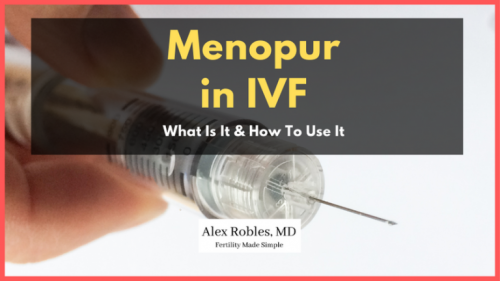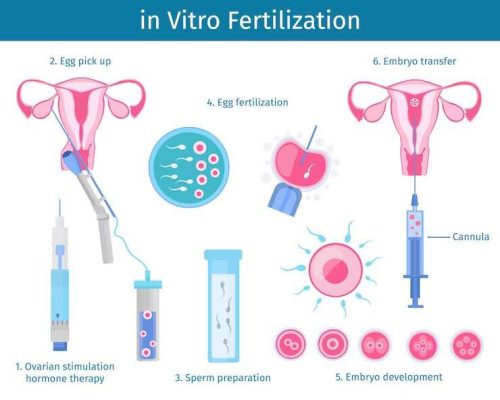
Thyroid Disorders and Infertility: How I Overcame the Challenge
When I first started trying to conceive, I never imagined that something as seemingly small as my thyroid could have such a huge impact on my fertility. But after months of trying, I was faced with one of the most frustrating, confusing, and overwhelming experiences of my life. Despite being in good health otherwise, I was struggling to get pregnant. That’s when I discovered the connection between thyroid disorders and infertility.

The Struggle to Conceive
I’ve always been someone who likes to stay on top of my health. I eat right, exercise regularly, and get plenty of sleep. So, when my husband and I decided to start a family, I assumed it would happen quickly. But after a year of trying, we were still empty-handed. My periods were regular, I felt generally healthy, but month after month, the pregnancy tests were negative.
After some time, I began to feel like there was something I was missing. I was frustrated and confused. What could be wrong? That’s when I went to my doctor, Dr. Rachel Grant, a reproductive endocrinologist, to get some answers.
“Infertility isn’t just about your age or the sperm count,” Dr. Grant explained. “Your thyroid health plays a big role in your ability to conceive. It controls hormone production, and even small disruptions can throw off ovulation, leading to difficulties in getting pregnant.”
It turned out that I had an undiagnosed thyroid issue.

What is a Thyroid Disorder and How Does It Affect Fertility?
The thyroid is a butterfly-shaped gland in your neck that produces hormones that regulate metabolism, energy levels, and other key functions. There are two common thyroid disorders that can affect fertility: hypothyroidism (an underactive thyroid) and hyperthyroidism (an overactive thyroid). Both can cause hormonal imbalances that interfere with ovulation and menstruation.
In my case, I had hypothyroidism, meaning my thyroid wasn’t producing enough thyroid hormone. It wasn’t enough to cause noticeable symptoms like extreme fatigue or weight gain, which is why I didn’t suspect it. However, Dr. Grant explained, “Even mild hypothyroidism can prevent ovulation, making it harder to conceive.”
In my case, the hormone imbalance was subtle but impactful. My thyroid was unable to properly regulate the hormones that controlled my menstrual cycle, which in turn made it difficult for my ovaries to release eggs. Even though everything else seemed normal, my body wasn’t doing the job it was supposed to when it came to reproduction.

Diagnosing Thyroid Problems
I’m someone who generally takes care of my health, but I didn’t realize that thyroid dysfunction could affect my fertility. My doctor ordered a simple blood test to check my thyroid hormone levels. The test showed that my TSH (thyroid-stimulating hormone) was elevated, which confirmed my hypothyroidism diagnosis.
“Thyroid problems are often undiagnosed until women are trying to conceive,” Dr. Grant said. “Even a minor imbalance can cause cycles to be irregular or prevent pregnancy altogether.”
This news was both a relief and a shock. I was relieved that we had finally discovered the issue, but I was also anxious about how to fix it.
Treatment for Thyroid Disorders and Fertility
The next step was to begin treatment for my thyroid disorder. For most people with hypothyroidism, the primary treatment is thyroid hormone replacement therapy, usually in the form of a daily pill. After starting my medication, Dr. Grant recommended that we wait a few months to see how my body responded before trying to conceive again.
“Thyroid hormone replacement therapy can be very effective, but it often takes time to get the right dosage,” Dr. Grant explained. “Your levels will need to stabilize before we know if the treatment is working for your fertility.”
It wasn’t an instant fix, and I had to have regular blood tests to monitor my thyroid levels. But over time, my hormones started to balance out, and my cycles became more predictable. I felt like my body was finally functioning the way it should.
The Road to Pregnancy
After about six months of treatment and adjustments to my thyroid medication, we were ready to try again. This time, something was different. My ovulation was regular, and my periods were back to a more predictable rhythm. We tried naturally for a few months, but when we still weren’t successful, we decided to pursue fertility treatments.
I underwent intrauterine insemination (IUI), a procedure where sperm is placed directly into the uterus to increase the chances of fertilization.
After what felt like an eternity of waiting, I finally got the news I’d been hoping for: I was pregnant.
What I Learned About Thyroid Disorders and Fertility
I want to share a few things I learned through my journey with thyroid disease and infertility:
- Thyroid disorders can be silent – Many women with thyroid issues don’t show obvious symptoms, especially in the early stages. Regular check-ups and blood tests are crucial, especially if you’re struggling with infertility.
- Get your thyroid levels tested – If you’re having trouble conceiving and can’t figure out why, ask your doctor for a thyroid function test. It’s a simple blood test that could reveal a lot about your fertility.
- Thyroid treatment takes time – Restoring thyroid function takes time. It can take several months to find the right medication and get your levels in balance. Patience is key.
- You can still get pregnant with thyroid issues – With proper treatment and careful monitoring, many women with thyroid disorders can successfully conceive. I’m proof of that!
- Your fertility is more than just your age – If you’re struggling with infertility, don’t just focus on your age or your partner’s health. Your thyroid health is just as important, and fixing it can make all the difference.
Final Thoughts
I know what it feels like to be in the unknown, wondering why pregnancy isn’t happening and feeling frustrated with each passing month. But if you’re struggling with infertility, and you suspect your thyroid could be a factor, don’t give up hope. With the right diagnosis and treatment, it is absolutely possible to overcome thyroid-related fertility issues.
I never thought I’d be where I am today, holding my baby in my arms after battling thyroid issues, but now I know that patience, perseverance, and medical support can bring the dream of parenthood within reach.




